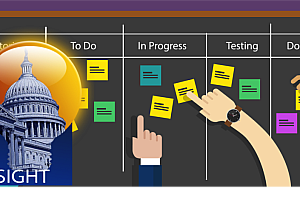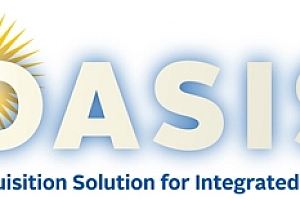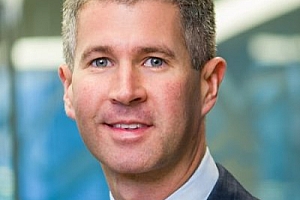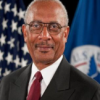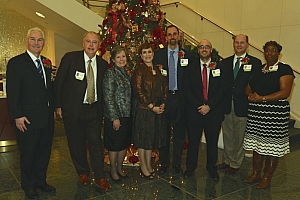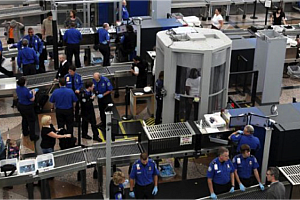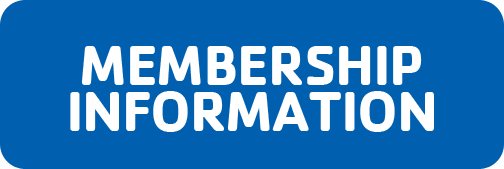A Case Study on the Power of Partnership: How Federal Agencies Can Find Qualified Small Businesses, Faster
When the Government Technology and Services Coalition (GTSC) was formed a little over 5 years ago, one of our primary missions was to improve and assist our federal partners in performing their market research. We immediately formed a “Market Research” workgroup, chaired by Brian Nault, President of BlueWater Federal to identify how the government could find the best providers, and reach the largest number of competitors, possible to meet the demands of their mission at the best price and highest quality.
We met with procurement officials and contracting officers to discuss some of the challenges of “being noticed,” by federal agencies, particularly for small businesses. We conveyed the shortcomings of the “Requests for Information” from a small business’s perspective, described how the lack of response from some agencies to the information provided in an RFI hindered a robust response from industry, and explained how the value of responding often was not high enough given the need for companies to spend time staying afloat chasing real opportunities. All of these shortcomings held true for any size business.
We are still working on improving the RFI process but recently we were able to provide some tangible assistance to a partner in the government – and were successful in showing that with the proper partnership, the government can get better, and faster access to qualified providers.
It began with a call from GTSC member and GTSC Small Business Member of the Year 2016 Kathy Pherson, CEO of Pherson Associates, a Woman-Owned Small Businesses (WOSB), who was concerned that a partner agency found no Woman-Owned Small Businesses in a certain NAICs code. The member connected us with the agency and to their credit, they were very interested in hearing from us! GTSC put out a call for firms qualifying for the requirements. In less than 48 business hours we had amassed over 25 qualified WOSBs and submitted them to the agency.
With that, they altered their initial track structure for the intended procurement to reflect this market research.
Why am I writing about this? This is obviously an “ideal” scenario!
I wanted to provide a real life example of how our government partners can leverage their industry partners to find their most qualified providers and best solutions competitively. We encourage all of our government partners to consider:
- Go to where the small businesses live. There are very few organizations that really represent small businesses in the federal market. Why? Simply because they do not have tremendous marketing dollars. Small companies look for the most resources for the least outlay of the capital they use to grow. Federal agencies should forge close ties with non-profits that work with, and actively represent small businesses.
- Develop and Leverage relationships.Every market is a series of relationships – healthy markets are composed of those you trust and those you do not. That is why “industry relations” are so important to a vibrant federal market. Good relationships with industry allow an agency to reach and get assistance to find the small businesses they need. It also saves a tremendous amount of time and leg-work to try and find new communities around every procurement.
- Be strategic. Different organizations are good at different things. The best federal industry liaisons, procurement officers, and leadership understand their market’s industry partners, who represents what, the organization’s mission, and the efficacy of the organization. Developing these relationships with industry allows them to understand how to best leverage existing resources and find active, engaged businesses.
- Talk to your industry partners. We may finally be coming out of a period where many in the federal government were reluctant to talk to industry. The message we’ve been hearing more than ever – from nearly every component within the Department of Homeland Security – is that acquisition and procurement leaders are encouraging their staff to get out more and talk to, and learn from, industry. As a matter of fact, under the leadership of DHS CPO Soraya Correa the Department has undertaken “Reverse Industry Days” – devised by industry – to provide their contracting staff an opportunity to learn about industry and how it operates. GTSC’s Acquisition & Procurement Workgroup lead, Carolyn Muir from SE Solutions and a former contracting officer with the Navy has been instrumental in crafting and adding tremendous value to the topics and lessons provided in these “Master Classes” on government contracting.
We continue to applaud these changes to our procurement and acquisition process and look forward to continue leading both industry and government as we navigate a market environment moving faster than conventional procurement can handle.
 Kristina Tanasichuk is CEO & Founder of the Government Technology & Services Coalition, a non-profit, non-partisan organization of small and imd-sized companies working in homeland and national security. She is also the president of InfraGardNCR, a public private partnership between the private sector and the FBI to share information to protect our nation’s critical infrastructure, and the president and founder of Women in Homeland Security.
Kristina Tanasichuk is CEO & Founder of the Government Technology & Services Coalition, a non-profit, non-partisan organization of small and imd-sized companies working in homeland and national security. She is also the president of InfraGardNCR, a public private partnership between the private sector and the FBI to share information to protect our nation’s critical infrastructure, and the president and founder of Women in Homeland Security.


